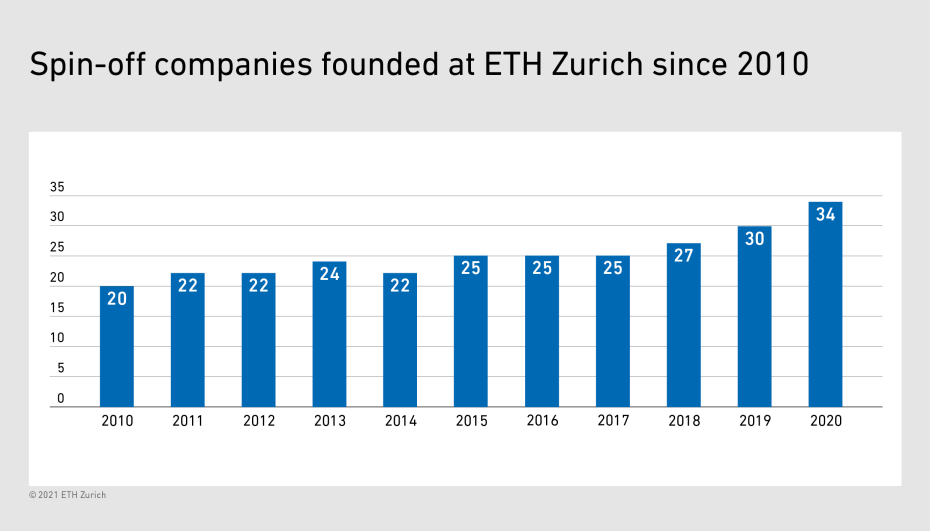
Despite the coronavirus crisis, the Swiss Federal Institute of Technology in Zurich (ETH) founded a record number of spin-offs in 2020. According to a press release, 34 companies were spun off from the university in total. The number of spin-offs founded per year has increased steadily over the past decade, with 276 established since 2010.
A strikingly high proportion were companies operating in the areas of artificial intelligence and sustainability. For example, Assaia based in Kloten in the canton of Zurich develops software that enables the optimization of aircraft handling at the gate and thus saves valuable time. Computer vision and AI are used to monitor, analyze, and improve all the relevant steps, such as refueling and loading, and the interactions between the various parties involved Based in Zurich, the spin-off Yasai focuses on the sustainable vertical farming of vegetables in Switzerland.
Increasing numbers of ETH students are establishing a spin-off. Though there are ever more women among them as well, the majority are still created by men. Of the 34 startups in 2020, just six were co-founded by women. “I hope to be able to empower more women in future to bring their ideas to the business world,” says the new Vice President for Knowledge Transfer and Corporate Relations, Vanessa Wood.
ETH spin-offs reportedly “generate significantly more jobs than the average Swiss start-up”. They are also more likely candidates for acquisition. In 2020, ETH spin-offs performed well with venture capitalists as well, raising more than 400 million francs. The textile and specialty material leader HeiQ, founded in 2005 and based in Schlieren in the canton of Zurich, began trading on the London Stock Exchange last year.
Related news
Meet with an expansion expert
Is Greater Zurich on your expansion radar? We support you on every step of your expansion journey - from location evaluation to fact finding visits.
Our services are free of charge and include:
- Introduction to key contacts in industry, academia, and government
- Location evaluation support to find the ideal base for your business
- Advice on regulatory framework, taxes, labor, market, and setting up a company
- Custom-made fact-finding visits, including office and co-working space
- And much more, customized to meet your needs.